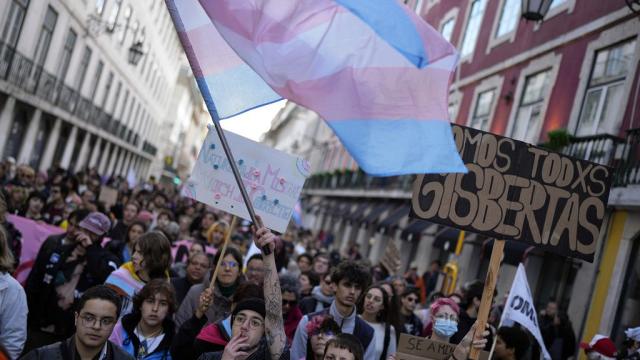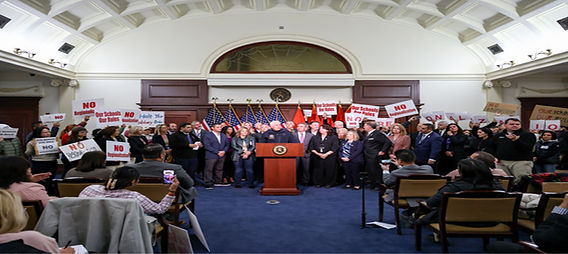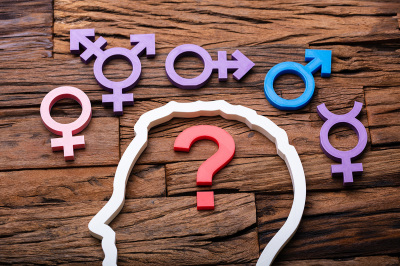EU Countries Disagree on Trans Rights Legislation Amid Tensions
EU Tensions Over Trans Rights Legislation
In the ever-evolving landscape of human rights, the discussion around trans rights has taken center stage—not just worldwide, but particularly within the European Union (EU). It seems the EU, often perceived as a bastion of progressive policy, finds itself in a tangled web of debates and disagreements regarding trans rights legislation. While we often applaud moves toward equality, the reality is that member states are split over how to best support and protect the rights of transgender individuals. Curious about what’s brewing behind the scenes? Let’s dive in!
A Deep Dive into the Heart of the Matter
So, you might be wondering, why does this matter? In simple terms, human rights impact everyone. If some individuals aren’t honored with the same rights and liberties as others, society as a whole is at stake. Trans rights are a crucial part of this equation. However, the EU is currently facing significant friction amongst its member states regarding how to approach and legislate these rights.
Isn’t it fascinating to think that what seems straightforward—equal rights for all—can become a heated debate among nations that present themselves as champions of human rights? That’s the paradox we find ourselves in.
Understanding the EU’s Stance
Historically, the EU has promoted an inclusive agenda. The European Union Charter of Fundamental Rights has enshrined laws to protect everyone’s dignity, but when it comes to trans rights, things get murky. Some member states are advocating for stronger protections, while others push back, arguing about national sovereignty and ‘traditional values.’
You see, on the one hand, we have countries like Sweden and Portugal, which have taken significant strides toward inclusivity. They’ve implemented progressive policies aimed at enhancing the lives of trans individuals, like easier processes for legal gender change and healthcare access. On the opposite end of the spectrum, nations such as Hungary and Poland are taking a more conservative route, enacting policies that many view as oppressive to trans communities.
It’s akin to watching a family fight over how to manage household rules—there’s disagreement, frustration, and, unfortunately, a feeling of helplessness among those who need help the most.
The Fractured Conversation
What’s most compelling about these discussions is the varied perspectives from different member states. Let’s break it down a bit:
-
Advocates for Change:
- Countries like France, with the backing of various NGO’s (Non-Governmental Organizations), argue that a unified approach to trans rights legislation is essential. They propose that a baseline framework be established across all states to ensure that trans individuals are safe, respected, and provided their rights equally.
-
Traditionalists:
- On the flip side, Eastern European countries often find themselves resisting these changes, citing concerns related to traditional family values. To them, any moves towards broadening trans rights feel like an affront to their cultural identity.
This divide reflects a clash of ideologies: progress vs. tradition. It’s not just about laws; it’s about identity, culture, and the very fabric of what it means to be European.
The Impact on Real Lives
But here’s where the rubber meets the road. While political debates rage on, it’s crucial not to forget the human aspect of these discussions. Trans individuals confront immense challenges daily, from discrimination in the workplace to lack of access to healthcare services.
Imagine navigating life where your very existence feels under constant scrutiny or threat; that’s the reality for many trans folks. The laws, or lack thereof, directly impact their safety, mental health, and overall well-being. When legislation stalls or goes awry, it’s their lives—and often their survival—that hangs in the balance.
The Role of Intersectionality
As we peel back layers, we must also consider the intersectionality within this discussion. Trans individuals are not monolithic; they come from various backgrounds, including race, sexuality, and socio-economic status. Policies that don’t account for these differences often fall short of providing comprehensive protections.
For instance, within the LGBTQ+ community, Black trans women are disproportionately affected by violence and discrimination. A law that fails to prioritize the most marginalized within the community is sure to face criticism and calls for reform. It’s not enough to create a one-size-fits-all solution; a nuanced approach is essential.
Potential Solutions
So, what’s the way forward? How can member states find common ground and create legislation that adequately supports trans rights across the EU? Here are some potential paths towards unity:
-
Creating a Unified EU Framework: By establishing a basic set of rights for trans individuals that all member states must adhere to, the EU could help ensure that no country can roll back rights without facing consequences.
-
Encouraging Open Dialogue: Think of it as a family meeting—finding common ground starts with communication. Regular discussions that explore the concerns of each member state may foster a sense of understanding and collaboration.
-
Empowering Local Advocacy Groups: Sometimes the best solutions come from the ground up rather than being imposed from above. Supporting local groups that work with trans communities can help ensure that their voices are heard in these debates.
- Promoting Awareness and Education: Often, resistance comes from misunderstanding. Initiatives aimed at educating the public and government officials alike about transgender issues and rights can shift perceptions and lead to greater acceptance.
The Road Ahead—Hope or Despair?
With so much at stake, one has to wonder: Is there hope for reconciliation, or are the divides too wide? The answer might lie somewhere in the messy middle—an ongoing challenge that reflects broader societal debates.
In this era of rapid change, we must remain vigilant and proactive. The people affected deserve nothing less. Commentators often say that the struggle for trans rights is a reflection of a society’s values, and perhaps that’s the most significant takeaway here.
Does Europe want to be a leader in human rights? Or will it allow its member states to drag it down into a quagmire of conservatism and division? The answer is up to us all, and it starts with conversation, advocacy, and a commitment to understanding that every human being deserves respect and dignity.
Conclusion
The division among EU countries concerning trans rights legislation isn’t just a political issue; it’s a human issue with profound implications for the lives of many. The clock is ticking, and as discussions unfold, it’s essential for both leaders and citizens to balance their debates with empathy, recognizing the real lives behind the laws. We must strive for an EU where every individual, regardless of their gender identity, can live freely and securely.
Now, let’s tackle some commonly asked questions about this topic:
FAQs:
1. Why is the EU split on trans rights legislation?
- The EU is divided due to differing cultural values and political ideologies among member states. Some advocate for progressive policies, while others resist changes that challenge traditional views.
2. How do trans rights impact society as a whole?
- Upholding trans rights enhances social equality and strengthens communal ties while allowing all individuals the basic dignity and respect they deserve.
3. What are some common challenges faced by trans individuals?
- Trans individuals often face discrimination in various areas, including employment, healthcare access, and social acceptance, which can significantly affect their mental and physical well-being.
4. Can grassroots movements make a difference in trans rights legislation?
- Absolutely! Local advocacy groups play a crucial role in raising awareness, educating communities, and pushing for legislation that reflects the needs and rights of trans individuals.
5. What can individuals do to support trans rights?
- People can educate themselves, speak out against discrimination, support trans advocacy organizations, and engage in conversations about trans issues within their communities. Every action, no matter how small, can contribute to a more inclusive society.







